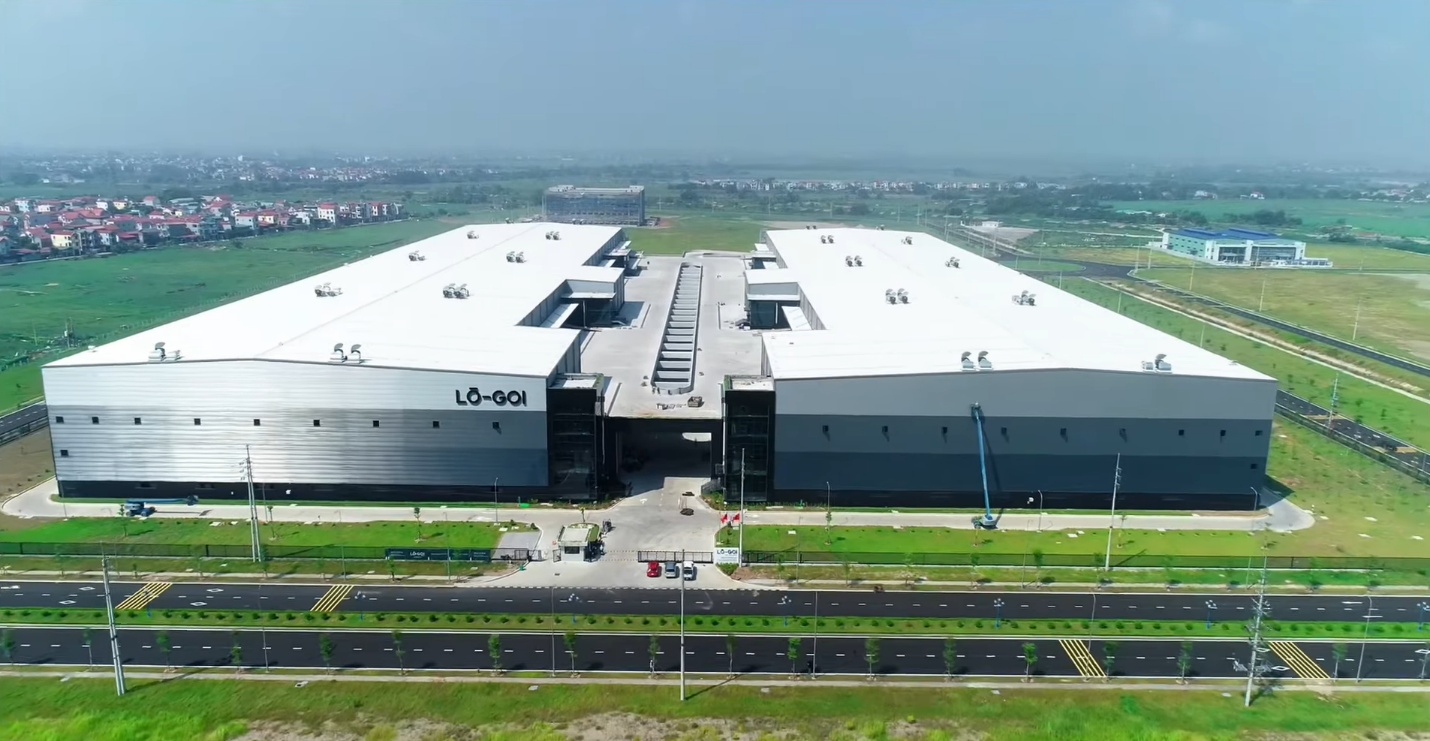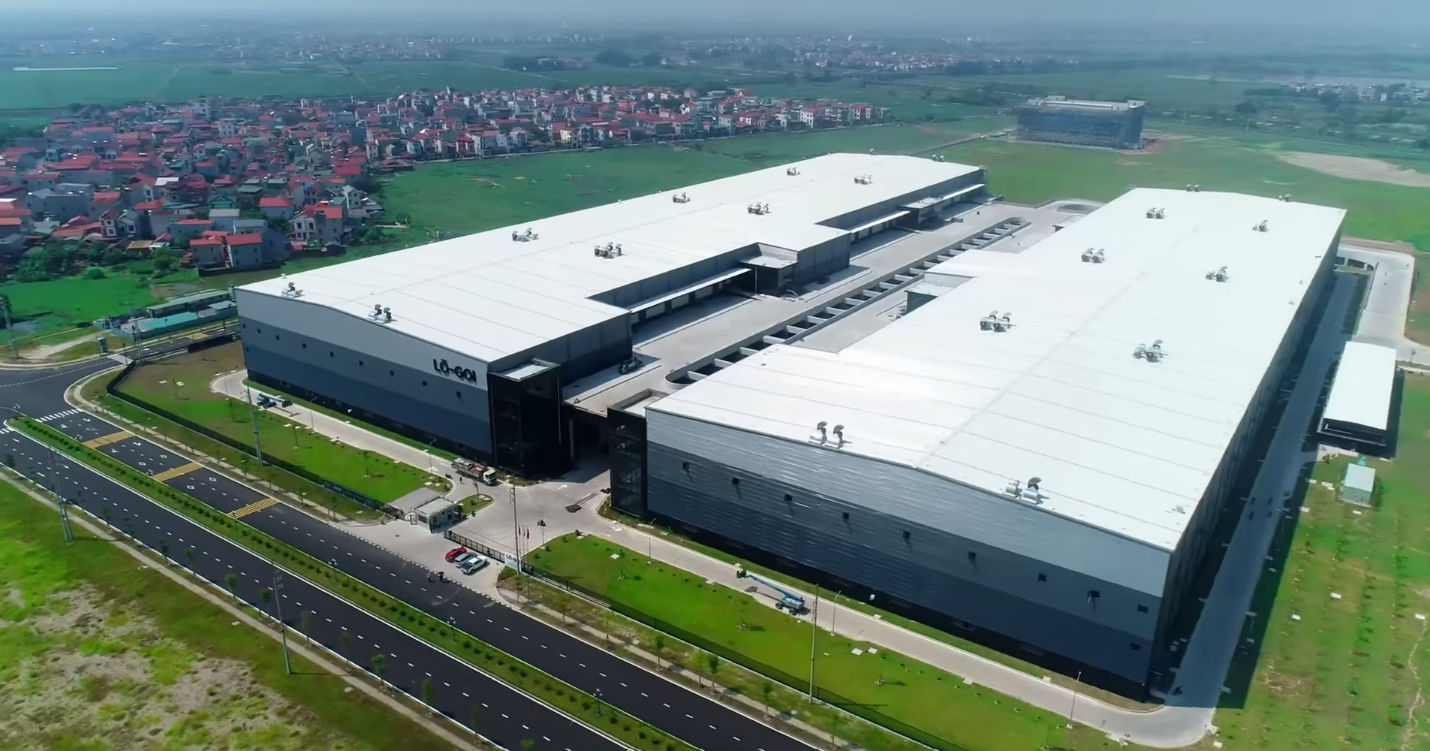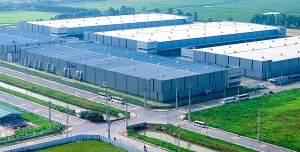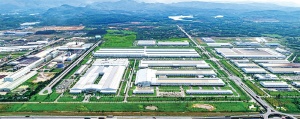Can you tell us about the company’s footprint in Vietnam after five years of operations?
After ESR Group completed its acquisition of LOGOS in 2023, LŌ-GOI Group took over LOGOS’s assets in Vietnam and India, thereby gaining independent operations and a sharper focus on these dynamic markets.
Since our early days in Vietnam, we have developed projects transferred from LOGOS Property Group, which managed a portfolio of around $1 billion with 11 key logistics assets and approximately 1 million square metres (sq.m) in India and Vietnam.
To date, we have launched two large-scale warehouse and factory projects in key provinces: Yen Phong 2A (Bac Ninh, 12.1 ha) and Hung Yen (12.9 ha). Both projects are being built to meet LEED-Gold standards.
In July, LŌ-GOI Hung Yen was inaugurated with a construction value exceeding $38.4 million. The project spans more than 130,100 sq.m of land, featuring two zones with a gross combined floor area of nearly 75,000 sq.m in Zone A and over 85,700 sq.m in Zone B. The entire complex comprises 12 two-story warehouses and a fully integrated system of supporting facilities.
 |
|
The Hung Yen project is a state-of-the-art warehouse and factory complex, incorporating multiple functions such as production areas, storage facilities, office space, and other supporting amenities. It is designed to modern standards and has achieved LEED Gold certification |
Also in mid-July, LŌ-GOI signed a MoU with Lach Huyen Port and Xuan Cau Free Trade Zone to develop a 200-hectare intermodal logistics hub, the first of its kind in northern Vietnam, alongside 350,000 sq.m of Grade A warehouses powered by a 42 MWp rooftop solar system, targeting LEED-Platinum and EDGE Level 3 certification.
What competitive advantages set LŌ-GOI Group apart in today’s market?
We prioritise infrastructure quality, developing Grade A factories and warehouses built to high standards, designed for automation, digitalisation, and resilient operations.
All projects aim for green certifications, applying LEED-Gold or Platinum standards, integrating solar energy and emission-reduction technologies from the design stage, well-suited for high-value and sustainable industries.
Beyond that, we maintain deep value-chain integration. We handle everything from land acquisition to asset management and property operations, ensuring consistent quality and oversight.
Sustainability and innovation are at the core of our development strategy, with a focus on renewable energy, automation, digital infrastructure, and carbon reduction, appealing to global investors aligned with environmental, social, and governance (ESG) criteria.
LŌ-GOI mainly serves global manufacturers, exporters, logistics operators, and investors seeking Grade A industrial properties that meet ESG standards.
How has LŌ-GOI integrated green elements into its factories and warehouses?
On energy efficiency, our facilities are designed with roofing that reflects a large portion of solar heat, reducing cooling loads, lowering energy consumption, improving thermal comfort, and cutting operational costs. Our solar reflectance index (SRI) reaches 82 per cent.
 |
|
LŌ-GOI invests in high-quality and sustainable warehouses and factories, utilising premium COLORBOND® steel from BlueScope with AM–ACTIVATE™ technology for superior corrosion resistance, together with THERMATECH® solar reflectance technology that can reduce roof surface temperatures by up to 6°C, which is applied as the cladding material across the entire project |
Infrastructure has been pre-designed to integrate solar panels, generating renewable energy, reducing reliance on the traditional grid, and cutting carbon emissions.
Our facilities also use Low-E glass for exterior facades, a special coating that minimises heat transfer, boosts energy efficiency, and allows natural daylight to reduce dependence on artificial lighting.
In parallel, we use 100 per cent LED lighting systems, which consume less energy, last longer, and require less maintenance than traditional lighting.
For optimal operations, our projects deploy fire protection systems compliant with NFPA standards (US), ensuring safety and regulatory compliance.
In building management, we use a Building Management System (BMS) to monitor and control mechanical and electrical systems (eg, HVAC, lighting), enhancing efficiency and minimising energy waste. Automated access control and CCTV systems provide integrated security solutions across entire sites.
To meet European standards for floor flatness, we apply EU specifications (FM35-FL25), which optimise operations, especially for automated material-handling equipment and high-bay racking systems.
When investing in factories, LŌ-GOI emphasises creating highly sustainable and aesthetically strong projects that maintain long-term value and brand image. Could you elaborate on this approach?
We focus on developing modern, sustainable, and adaptive industrial facilities, the core factors for preserving long-term asset value. Our properties are designed with flexibility to meet evolving tenant demands, regulatory requirements, and market conditions, ensuring continued efficiency, appeal, and competitiveness for decades.
By integrating green building principles, such as energy and water savings, optimised layouts, and healthy work environments, we reduce operating costs while enhancing tenant satisfaction and productivity. Achieving internationally recognised standards, such as LEED Gold, not only strengthens environmental performance but also elevates our projects as benchmarks for responsible industrial development.
Through the use of premium materials, functional design, and integrated landscaping, our facilities maintain aesthetic value, structural durability, and performance over time. This approach extends asset lifecycles, reduces maintenance costs, and sustains market attractiveness.
In short, high-quality, adaptive industrial buildings represent a strategic investment, delivering sustainable economic returns, meeting rising ESG expectations, and preserving both reputation and asset value into the future.
 |
Industrial property market gains as global supply chains shift
Landlords stand to benefit as logistics hubs adapt to changing regional trade dynamics. |
 |
Resilient industrial system within reach
A new focus on private sector development should create the best conditions for businesses in industrial real estate and eco-industrial parks to grow more sustainably. |
 |
Businesses adjust to seize industrial property chances
Fueled by booming foreign funding, industrial real estate is becoming an investment focal point, motivating many enterprises to broaden their current portfolios and shift strategies towards the high-potential sector. |





